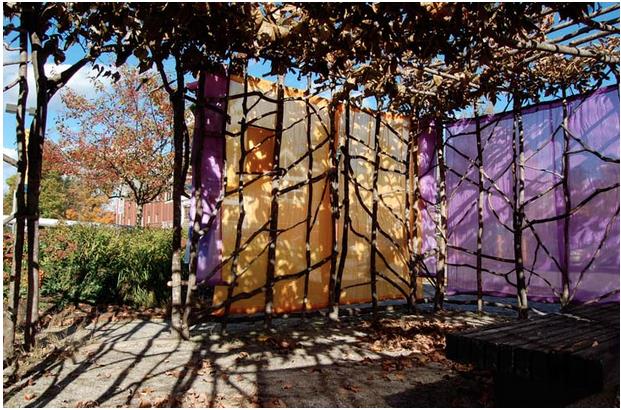
I asked my son what he was building and he said, “a Sukkot” which was a part of the celebration at the Jewish preschool he attends. I shared this with a fellow aikidoist from Israel when I was abroad; what brought us together was a shared practice of Aikido but what was celebrated was the shared practices we were surprised to discover.
I was in Greece (TAB 2015) having diner with someone from Israel, talking about my son who goes to a Jewish preschool. The shared practice of Aikido led to discovering a shared community back home. I was raised Catholic so when my son comes home with new words and songs I have to go straight to google… I have had a number of conversation that go from where are you sending your kid to school to, “oh, well that must be interesting, what made you decide to send him to a Jewish school?” The answer is because I wanted a community that was a chance for him to love school, the outdoors, and have a community focused on compassion and ethics; in Richmond, VA that turned out to be the local Jewish Community Center.
Daniel Herman, an instructor from Israel asked the above question and became very interested about the Jewish community in Richmond. He loved hearing stories of my “education” when it came to learning my son’s song’s and helping him build sukkot(s) all over the house. What Daniel was most interested was to hear about the vibrant Jewish community in my city, the celebration of his far away homeland, and that his story was important to kids and their teachers across the Atlantic.
In the states we try to celebrate our connection to the world and its diverse communities of practice. There are communities of faith, culture, and identity that celebrate the world we come from. What surprised me is that the world does not have a sense of this. I thought I was preparing my son to be a loving part of this world, I realized that through a shared practice we have the opportunity to help the world feel that it is a loved part of us.

“We have the opportunity to help the world feel that it is a loved part of us.” It’s so simple—just a shift in our perspective, and yet, I feel like I have never really thought of things that way. Even in trying to show compassion and love to the world or people in particular, sometimes we fall short—and maybe that is because we still consider the world as separate from us. A common thread amid a lot of Eastern philosophy I have had the opportunity to read is that separateness is an illusion. Considering the world as something other than a part of us limits our ability to understand and show love more intelligently.
While kind of abstract, this sort of idea can very much have practical uses. Upon reading this post, my first thought was about some of the experiences that I have had growing up and looking different from most of my peers, as well as about the overall political climate. I think that many people’s conceptions of the United States are based on certain things that reported in the news that do not show the full story. Even as we struggle with what I see as growing pains, in our country, we still have opportunities that so many others do not, and still opportunities that people are not aware we have. For example, my father will often tell me that the entire concept of a televised political debate is unheard of in his home-country—that the potential political leaders we can elect are held accountable by the public is a freedom and privilege not everyone else has. That our ability to celebrate our cultures and practice different faiths is the first right we are guaranteed in the Bill of Rights is also amazing. We might have work to do, definitely, but maybe that work would be benefited by loving the world as a part of us, as Americans of all sorts of backgrounds.
I appreciate the wide diversity in this experience. However, even miles and countries away, the practice of Aikido has the power to bring people together. Again, compassion plays a huge role in this story. Compassion for Aikido, the instructor, and of the world in general, which is very important because it is one of the main teachings of Aikido. It is so very interesting that some many people have such a diverse background and experience, yet reside right here in Richmond, Virginia. I think it was wise of the mother to teach the son that love can be given and felt anywhere in the world. With this teaching, she is showing her son the power of love and subliminally instilling in him the importance of helping others. This was a very cool story and I’m sure an even better experience.